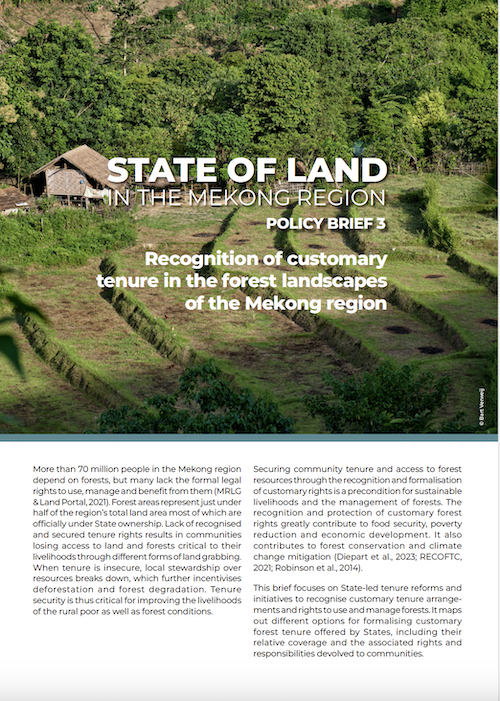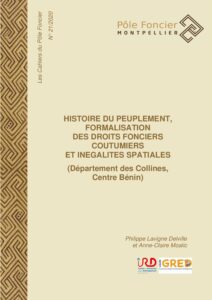Recognition of customary tenure in the forest landscapes of the Mekong region
The policy brief, one of four briefs on the agrarian transition in the Mekong region, explores initiatives and pathways forward to recognise customary tenure arrangements and rights over forest areas in the region. More than 70 million people in the region depend on forest areas but lack formal legal rights to use, manage, and benefit from them. Forest landscapes represent just under half of the region’s total land. Yet, over the past two decades, the region has lost a significant amount of forest due to the expansion of commercial agriculture.




